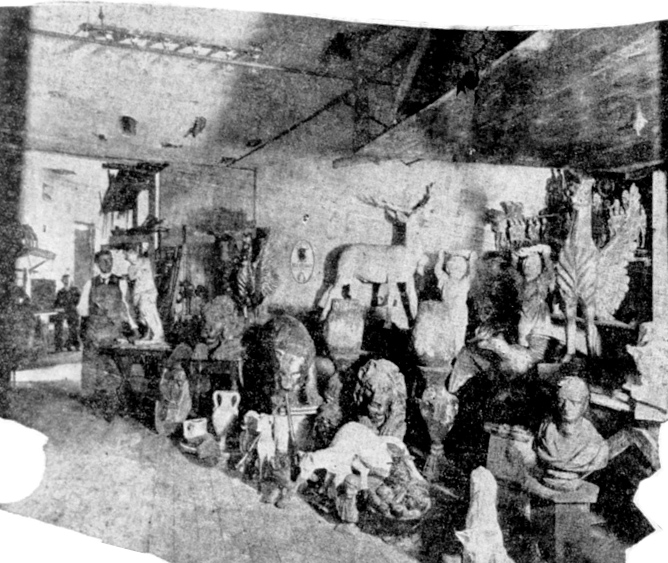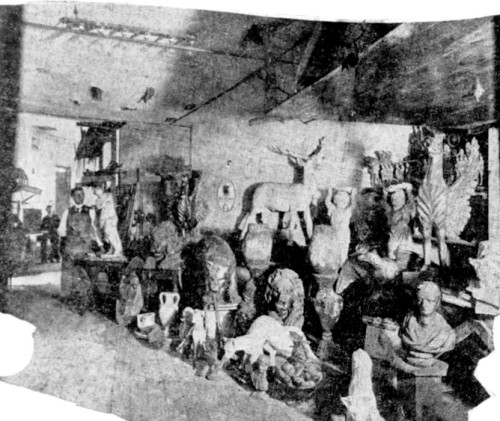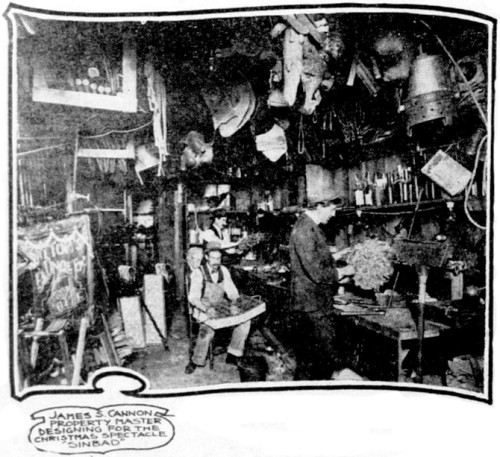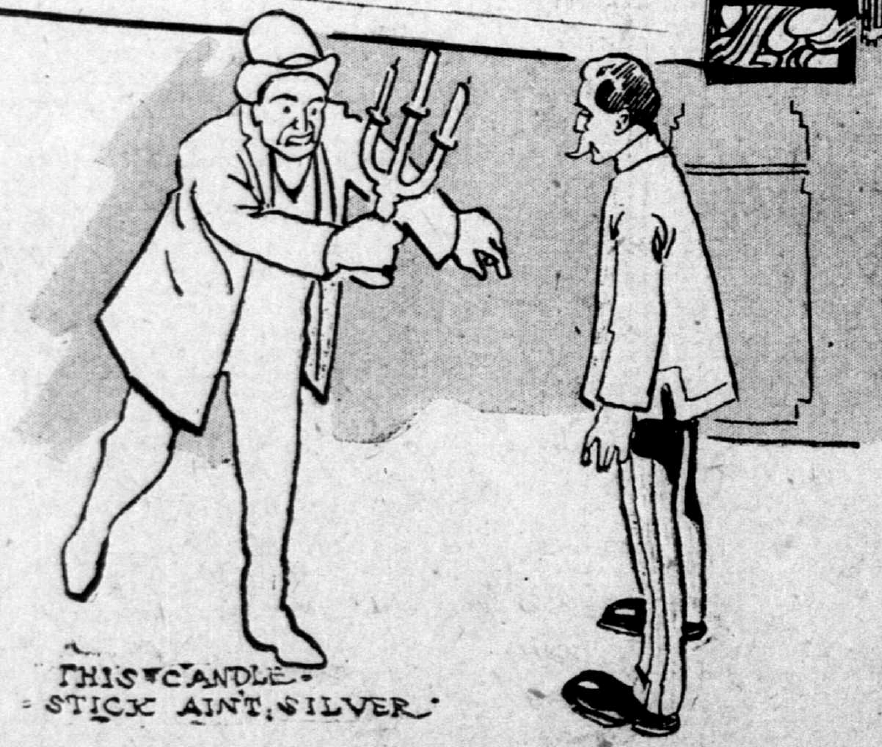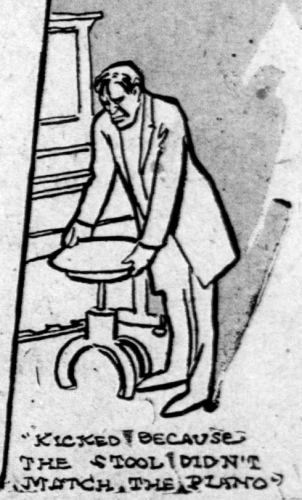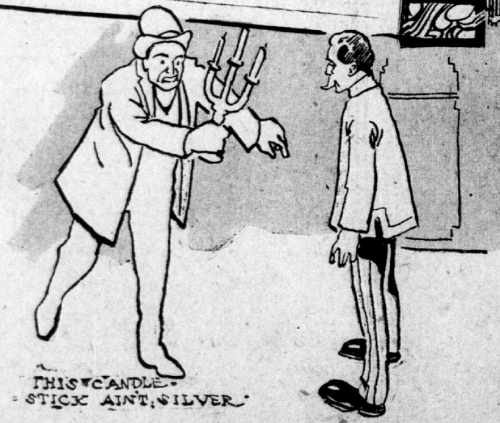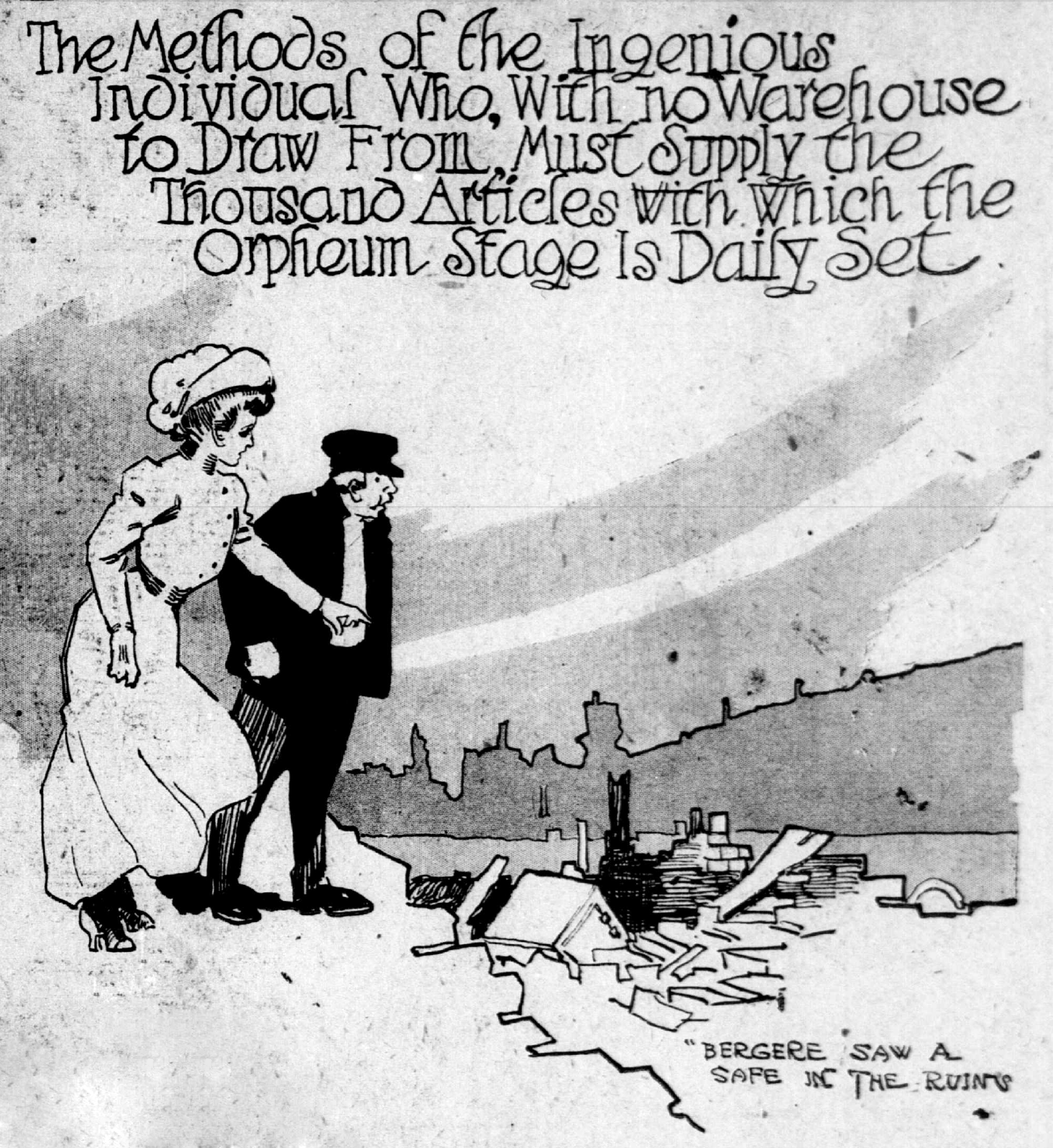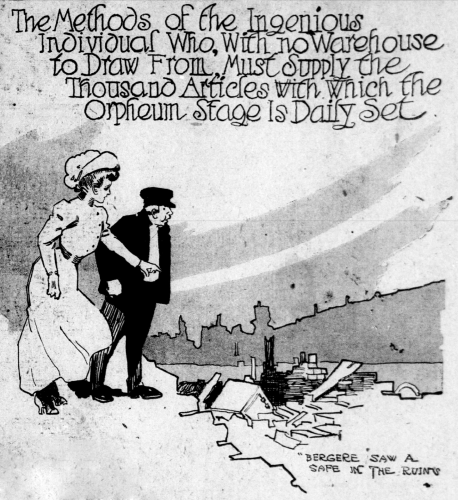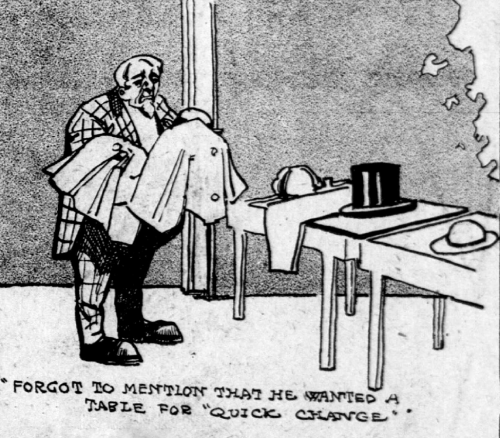The following article first appeared in the San Francisco Call in 1895:Â
An exceptionally good performance was that given of “Diplomacy,” at the Columbia Theater last week. The leading parts, particularly those of Beach and Richman, were in the hands of actors who made them artistic pictures, and even the minor characters were finished studies.
The propertyman made the performance of “Diplomacy” remarkable by some rather clever compromises, which showed that he desired to give the French coloring and at the same time did not intend to lose his hold on local interest.
For instance, in the English embassy in Paris the newspaper which the unhappy husband snatched up in his despair and affected to read in the lull glare of the footlights was unmistakably a French journal, for the people in the stalls could read the type of that politest of languages, though they were a little staggered to see that the British diplomat was consoling one of the most trying moments of his life by studying Le Franco-Californien. Perhaps the propertyman wished to convey the impression that if Dora’a conduct forced her husband to fly to happier climes he could not do better than turn his steps to California.
It was a patriotic inspiration, too, to decorate the Parisian office of her Britannic Majesty with three large and handsome maps of the United States. Great rareties they must have been considered in Paris, too, for everyone who is familiar with that giddy capital knows that the outside world cuts very little figure in its geographies. You can buy “France in Provinces,” “France in Departments,” “France With Railroads” — canals, mountains, hedges and ditches— if you choose, but anything outside of France is always represented as of microscopic dimensions, scarcely visible to the naked eye.
Such little touches of local coloring apart, the staging of “Diplomacy” was finished and handsome, as is always the case at the Columbia Theater.
The San Francisco call. (San Francisco [Calif.]), 29 Sept. 1895. Chronicling America: Historic American Newspapers. Lib. of Congress. <http://chroniclingamerica.loc.gov/lccn/sn85066387/1895-09-29/ed-1/seq-20/>

